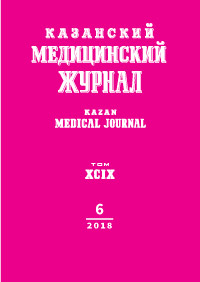Барселонская Декларация Международного общества клинической биоэтики «О защите достоинства и прав детей в условиях глобальных вызовов и усиления их уязвимости» 20-21 сентябрь 2018 г., Барселона
- Выпуск: Том 99, № 6 (2018)
- Страницы: 1032-1033
- Раздел: Хроника
- Статья получена: 26.11.2018
- Статья опубликована: 25.11.2018
- URL: https://kazanmedjournal.ru/kazanmedj/article/view/10525
- DOI: https://doi.org/10.17816/KMJ10525
- ID: 10525
Цитировать
Полный текст
Полный текст
Принято на XV ежегодной конференции Международного общества клинической биоэтики
«Биоэтика и Педиатрия: будущее развитие и вызовы» 20-21 сентября 2018 г., Барселона
Преамбула
1. Международное общество клинической биоэтики встретилось на XV Конференция 20-12 сентября 2018 г. в Барселоне и обсудило будущие события и проблемы в педиатрии, а также для защиты прав детей в попытке сделать всеобщий призыв к обеспечению защиты каждого ребенка для лучшего будущего.
2. Дети мира - это наше общее будущее. Они зависимы от нас, от семьи, от государственной и международной политики наших стран и закона. Они уязвимы и несамостоятельны. Наша обязанность - обеспечить им счастливое будущее, здоровое детство, защиту от дискриминации и насилия.
3. Необходимо предпринять все усилия, чтобы принятые международные и национальные нормы защиты прав детей исполнялись неукоснительно. Наши усилия должны быть направлены на нулевую толерантность к росту уязвимости детей в условиях развития научно-технического прогресса, глобальных вызовов и процессов миграции.
4. Вместе с тем угрозы глобального мира, научно-технические достижения и отход от ценностей гуманизма создают условия и предпосылки для усиления уязвимости детей; многие дети по-прежнему живут в зоне риска.
Проблемы
5. Мы можем констатировать, что угрозы жизни, здоровью детей по-прежнему остаются актуальными в международной повестке дня и на уровне национальных государств. К ним относятся войны, нищета, голод, расовая дискриминация, эксплуатация, жестокость со стороны взрослых и другие акты насилия.
6. В условиях растущей миграции и вынужденного переселения многие дети вынуждены покинуть свои родные дома, а иногда и семью. Мигранты есть во всех странах мира. Их число растет быстрее, чем численность населения мира, и в 2015 г. оно превысило 244 млн человек. Фактически каждые 4,1 сек. в мире появляется новый беженец, вместе с тем приблизительно 65 млн человек являются вынужденными переселенцами, включая более 21 млн беженцев, 3 млн лиц, ищущих убежища, и более 40 млн внутренне перемещенных лиц. В ООН отмечают, что 46 % от 45,2 млн - это дети и подростки младше 18 лет, т.е. несовершеннолетнего возраста, которые становятся заложниками глобальной политики и оказываются еще более уязвимыми в этих условиях.
7. Научно-технический прогресс, призванный улучшить жизнь и здоровье детей, способствовать их гармоничному развитию и успеху, зачастую создает предпосылки угроз и потенциальные риски, среди которых последствия применения генной инженерии, информационных технологий и виртуальной реальности, киберпреступность, рост социального неравенства и доступности к социальным благам, социальная дезадаптация и др. Отсутствие необходимого количества лекарств - это реальность. 50 % лекарств, используемых для лечения детей, тестировались без них, это касается и 90 % новорожденных.
8. Мы вынуждены констатировать появление тревожной тенденции дегуманизации национальных законодательств в части прав детей и их родителей, норм закона, легитимизирующих детскую эвтаназию, что представляет собой прямую угрозу жизни и здоровью детей, разрушает ценности традиционной семьи.
9. Все эти проблемы закладывают предпосылки демонтажа тех ценностей, норм положительных результатов, которые были достигнуты благодаря таким принятым основным международным документам, как «Всеобщая декларация прав человека» (1948 г.), «Конвенция ООН о правах ребенка» (1989 г.), «Европейская конвенция о правах человека и основных свободах» (1953 г.), «Декларация прав ребенка» (1959 г).
Задачи
10. Соблюдение норм международного права по защите детей и подростков, отраженных в основных международных документах, прежде всего «Конвенции ООН о правах ребенка», должны стать условием легитимности каждой страны в международном пространстве.
11. Обеспечение детям равных возможностей и доступа к медицинскому обслуживанию и социальным пособиям, защита их личного пространства и безопасности, улучшение качества жизни детей, снижение травматизма, инвалидности и причин детской смертности как приоритет на местном, региональном и международном уровнях.
12. Достижения научно-технического прогресса должны быть направлены на улучшение здоровья и качества жизни детей.
13. Особое внимание должно быть направлено на защиту прав детей мигрантов и вынужденных переселенцев, недопущение их использования в целях дискриминации, эксплуатации и манипулирования.
14. Самоопределение. Дети должны быть подготовлены к ответственной жизни в свободном обществе и быть в состоянии адаптироваться к неопределенности, поэтому детям необходимо давать возможность определить себя как личность и реализовать свои возможности в безопасных и благоприятных условиях (например, спорт, образование, семья и т.д.) в целях обеспечения их благополучия.
15. Необходимо сохранять приверженность ценностям гуманизма в семье и социальной политике национальных государств, в том числе поддерживаемых традиционными религиями, укреплять взаимоотношения между родителями и детьми.
16. Сегодня становится социально необходимым особый вид системно организованной деятельности, направленной на прогнозирование новых возникающих угроз человеческому потенциалу и уязвимым группам населения, особенно детям. Ядром такого рода деятельности, на наш взгляд, должна стать биоэтическая экспертиза.
17. Необходимо сформулировать ряд общих этических норм и правил, которые минимизируют риски уязвимости, гарантируют защиту прав детей в условиях глобальных вызовов и современной медицинской практики, в условиях глобальной и клинической биоэтики.
Обязательства
18. Благополучие детей требует мер не только политического характера на самом высоком уровне, но и активного участия научного и экспертного сообщества, частью которого мы являемся.
19. Настоящим мы торжественно берем на себя обязательство включать ежегодно в повестку наших международных встреч тем, связанных с защитой прав детей и активизировать исследования в этом направлении.
20. Мы согласны, что будем работать совместно в рамках международного сотрудничества, а также на местном и региональном уровнях.
20-21 сентября 2018 г., Барселона
Члены Международного общества по клинической биоэтике:
Авайя Тайоши, Япония
Гурылёва Марина, Россия
Накатсуко Масахиро, Япония
Нежметдинова Фарида, Россия
Павлинович Сильвана, Хорватия
Пелчич Гордана, Хорватия
Рибас Сальвадор, Испания
Сасс Ганс-Мартин, США
Шишидо Киесуки, Япония
Тай Майкл Ченг-тек, Тайвань
Томашевич Лука, Хорватия
Список литературы
Дополнительные файлы







